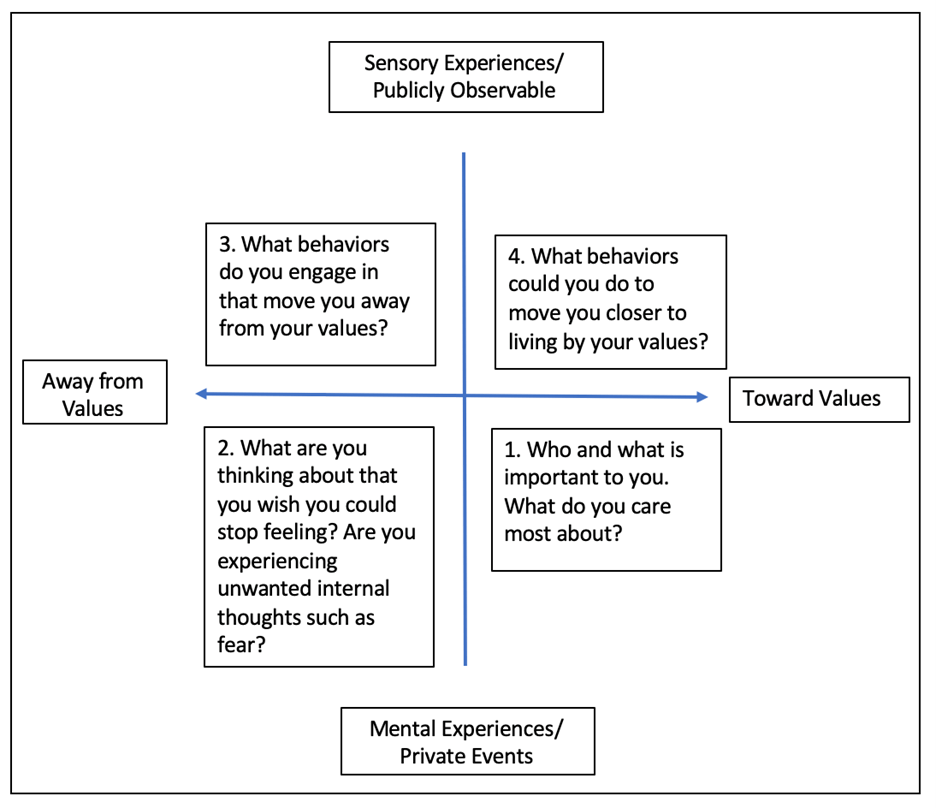The life we know has abruptly changed as a result of COVID-19, and now we are left to figure out what to do during summer. For some people that means varied amounts of free time, for others that means an increase in work obligations, and then there are some people that are living a very similar life as they were 6 months ago, perhaps with a bit less social interaction. Using the ACT matrix, we can learn about some considerations and move forward with values-based living.
First, we need to think about what we, as individuals, need and want on a short-term and long-term basis. There are many ways that we can spend our time; however, when we think about our own physical needs, emotional needs, sensory needs, and personal values, we have to ask ourselves, “What kind of activity would best support ME?” Four considerations for determining those wants and needs are listed below.
Next, one of the big questions many people have is “How can I occupy my time?”, especially when it feels like you can’t see anyone for safety and health reasons, everything is closed whether that’s due to social distancing or financial impacts, and funds may be limited depending on one’s own job. While this is only one of the many answers, you can start by determining your values and moving toward committed action. The “ACT Matrix” may be a helpful tool for you to decide the best way to spend your summer. ACT is short for Acceptance and Commitment Training (or Therapy). Every day, we human beings engage in mental and sensory experiences, but we may not think about whether they are moving us toward or away from living by our values.
To use this matrix (see Figure 1), start at the bottom right box by asking yourself who and what is important to you and list your response(s). This can be done as a general question or even by specific topics (e.g., professional life, personal life, health and wellness, etc.) You then move to the bottom left box and ask yourself what you are feeling or thinking about that may be moving you away from what or who is important to you. In short, what mental experiences are you having that may impact your behavior negatively from what behavior you want to engage in? From there, in the upper top left box, you list the observable behaviors you are currently engaging in that are moving you away from living by your values. Finally, in the top right box, you respond to what behaviors you can begin engaging in to move you toward living by your values. At this point, you can create goals based on your values and the behaviors you want to engage in.

Again, this is only one tool that can be used. It does not mean you must be productive at all times of the day because rest and relaxation are self-care. However, it may help you to figure out the best way to spend your time. Try it out. Share it with your friends and family. We can all benefit from additional support during these times!
Available resources for ACT Matrix:
Ready to start the RBT or ABAT Course? Click here to get started.
Let us know if there is a topic you would like covered in a blog or if there is an aspect of ABA learning you would like in a course!